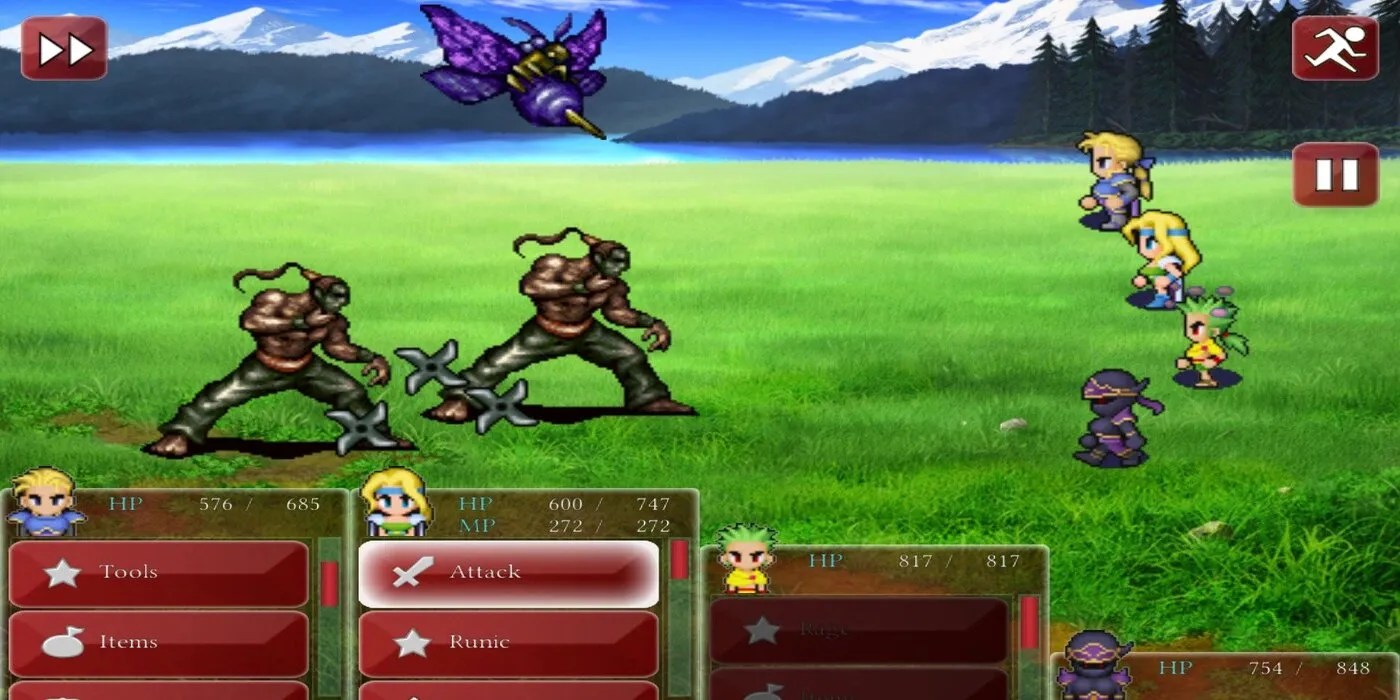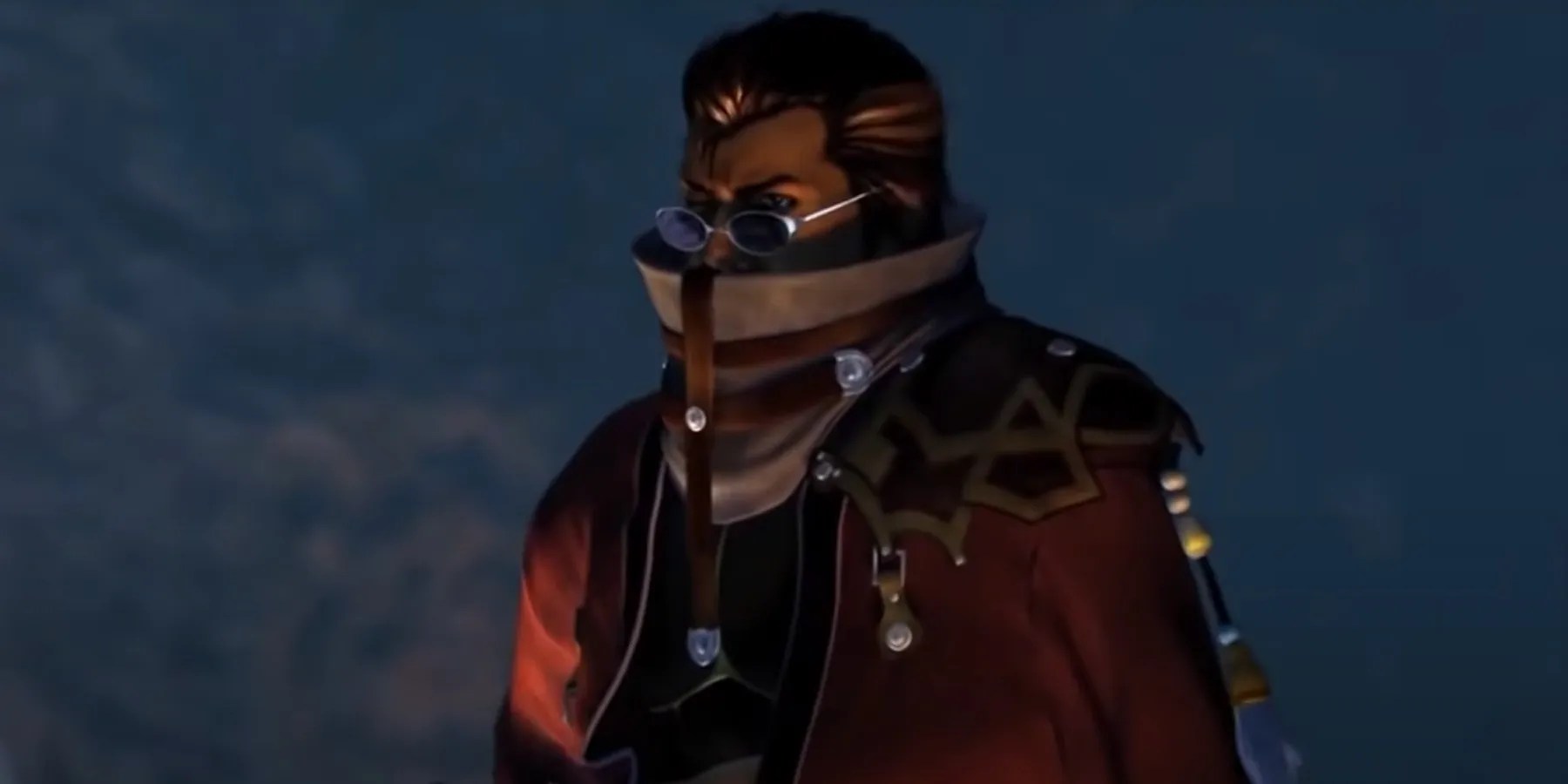Summary
TheFinal Fantasyseries is no stranger to themes of darkness. However, these occasional grim and dystopic backdrops often serve to brighten the light carried in the hearts of the young, idealistic protagonists. Over time, the series matured, and technology advanced sufficiently to accommodate the conveying ofmore complex video game storytelling. As such, more cynical characters were introduced to add a little spice and existential drama into the mix.
Hero or villain, cynics have shown up all throughout the series (to be clear, that’s “cynic” in the modern sense, not the philosophy of casting off ambitions of wealth, social standing, or glory in favor of a simple life of virtue). These characters tend to be rude, apathetic, and even a little nihilistic in their belief that nobody is really out there looking to do the right thing. Whether they are fallen optimists orvictims of a life of tragic suffering, these characters add a dash of shade in typically crystal-bright worlds.

Perhaps because players see his internal monologs and deepest thoughts throughout the events ofFinal Fantasy 8,Squallcomes across as brash, uncaring, and self-absorbed. That being said, outwardly, although Squall does convey a lot of his cynicism about the world out loud (for example, showing no interest in the noble intentions of Timber’s plucky anarchist liberation group), he does so while providing leadership and a professional attitude on or off the mission.
Squall’s cynicism is deeply personal and stems from the loss of his family at a young age. He expects to be abandoned by people and acts accordingly, preferring a hyper-individualistic life over one with comradery, friends, or family. This kind of thinking could even be pragmatic for someone who grew up as a child soldier, and who will realistically have to deal withthe death of loved ones eventually. Thankfully, part of Squall’s journey is learning that not everyone is out for themselves and that some people will chase him through time and space to save him.

Selfish, brooding, and available to Hire for any dirty job at the right price,Shadowcares for nobody else but his dog, Interceptor. Although he hides his identity and past from the rest of theFinal Fantasy 6party, it is revealed that Shadow, or Clyde, was once a train robber. He even settled down,fell in love, and started a family, but he was so overcome with fear about his past catching up with him that he fled with the family pet.
Shadow shows moments of remorse for his hardened outlook - for example, when he warns Terra not to “kill [her] emotions” - and he finally begins shedding his disinterest in humanity when he agrees to join the party to take on Kefka to save what remains of a ruined world, even potentially sacrificing himself to save others. Still, Shadow sacrificing himself for friends and family doesn’t mean that he doesn’t view the rest of the world as unworthy.

DuringFinal Fantasy 7’s opening bombing mission,Cloudsets himself apart from members of theeco-terrorist group, Avalanche, by declaring that he has no love for the protection of the planet and is decidedly blowing up one of Shinra’s reactors for the cash. He comes across as arrogant and cold, much to the chagrin of others around him. However, he uses much of this cynical disinterest as a bulwark to protect his shattered psyche.
Cloud was always an outcast as a child. He had always wanted to be a hero, but in moments of crisis, he only let his loved ones down (at least in his mind), which led to a deep internalization of guilt and shame. After the traumatizing events of Nibelheim, in which he watched his former heroic idol turn mad and murderous, Cloud began to see the whole world as a battlefield and strove to rid himself of kindness and warmth entirely.

Cynicism, or the belief that most actions in the world are taken to prolong suffering for the gain of a group or singular bad actor, is a tempting (if draining) worldview to hold. However, in the case ofFinal Fantasy 10’s Auren, it is, in fact, the correct one to hold. Having seen how the world is set to balance on the sacrifice of innocent summoners, Auren holds contempt for Spira’s greatest religion, Yu Yevon, for blinding the population into servitude to a false god and bottlenecking any progress toward truly ending Sin’s reign of oppression.
Although he keeps this quiet, his goal is to undo the grip this religion has on the population (the promise that if they keep their faith, they will one day be rid of Sin), first by helping his old summoner friend’s daughter, Yuna, herselfa powerful summoner, see for herself the grand deception. He leads Tidus to Yuna, and with the same bond Auren shared with his old guardian comrade, Jecht, the two begin to unravel the lie, after which the cycle of death can truly end.

1Kefka Palazzo - Final Fantasy 6
The Psychotic God That Seeks To Rip Away The Illusion Of Hope
While many cynical figures hide a soft, wounded interior beneath their hardened, often mean exterior, this character is cynical to the core. Broken by years of experimentation at the hands of the empire,Final Fantasy 6’sKefkahas nothing but contempt for love, friendship, or hope. Not only is he a sadist, but he truly believes that life is simply a distraction before death, and acts accordingly byusing his incredible powerto send countless people to an early grave.
While there are certainly crossovers of nihilism in his thinking (and plenty of sadism), his desire to turn everything into chaos likely stems from his experiences under magical torture and from his own squashed hope. Simple nihilism would cause him to give up and perish, but Kefka probably sees his actions destroying all life as a kind of twisted mercy, a ripping away of pointless illusions, and a projection of his own deep pain.